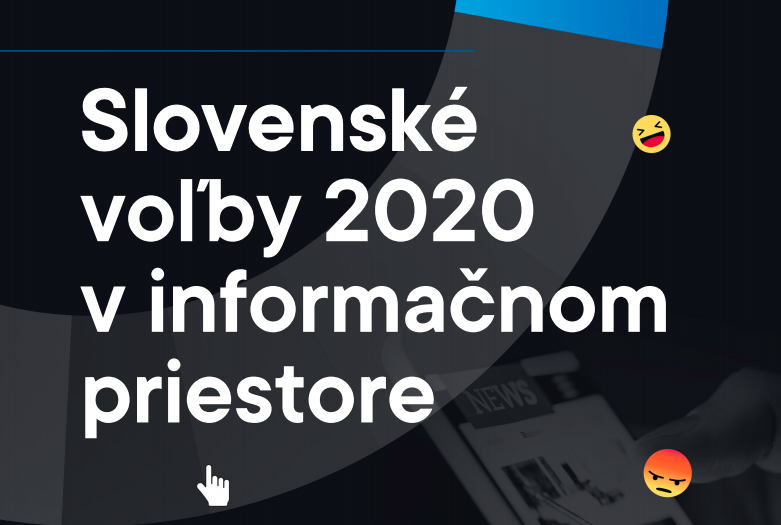Slovak Parliamentary Elections 2020 – Social Media and Disinformation

On March 24, GLOBSEC and MEMO98, Slovak NGO with more than 20 years of experience in election monitoring, organised an expert discussion titled Slovak Parliamentary Elections 2020 – Social Media and Disinformation, in cooperation with the International Foundation for Electoral Systems (IFES) and Seesame Communication Experts. The discussion was attended by around 45 experts ranging from journalists and public sector to academia and think tank community.
Rasťo Kužel, director of MEMO98, and Miroslava Sawiris, research fellow at GLOBSEC, first presented the findings of a new joint report (Slovak 2020 Elections in Information Space, in Slovak).
Mr Kužel stressed that the Slovak media provided voters sufficient information for their voting decision, although the public broadcaster RTVS did not fulfil their role of impartiality since the coalition parties, especially the Slovak National Party (SNS) received the most coverage. On the other hand, the print and online media substituted RTVS in being critical to all political actors and provided sufficient information important for the democratic character of the country.
Ms. Sawiris focused on the role of Facebook, which, according to her, serves as a highway for disinformation narratives to break into the mainstream political discourse and shape the debates in the largest information source in Slovakia - TV. A crucial and the most striking example of normalisation of anti-system narratives in the mainstream discourse is the transmission of the narrative portraying liberals and liberal democracy as a threat to Slovakia and system. Ms. Sawiris thus considered extremism and populism as a winner of the election, whereas liberalism remains defeated. Reflecting on the possibility of foreign interference, Ms. Sawiris reminded that the shapers of the manipulative and disinformative discourse were the internal actors, which, together with anonymity on social media, make it impossible to show any evidence of a connection to foreign actors.
The discussion was then joined by Beata Martin Rozumilowicz from IFES, Richard Lappin, Public Policy Manager focusing on Elections Content from Facebook, and Ľuboš Kukliš from the Council for Broadcasting and Retransmission of the Slovak Republic (ERGA).
Ms. Rozumilowicz seconded the claim that there is an increased influence of political campaigning on social media worldwide, and it was observed significantly also in the case of Slovakia. On one hand, it offers the opportunity to political actors to communicate directly to their electorate, on the other hand, it also brings in the novel issues that need to be tackled. In order to protect the elections integrity, the measures must be adopted.
Richard Lappin emphasized the efforts of Facebook and the priorities of the company in maintaining the integrity of elections. He repeated Facebook’s main position which claims that the freedom of expression is one of their key values, which is why Facebook does not want to intervene into the political discourse. On the other hand, Mr Lappin claimed that Facebook is trying to protect the political debate from external interference. Mr Lappin mentioned also how Facebook started to fact-check the content in Slovakia before the elections (note from Stratcom team – 2 articles were checked within one month prior to the elections, none of them concerned hate speech, harmful or disruptive content), and confirmed that Facebook did not find any widespread foreign influence operations. His intervention was followed by many audience questions about the procedures, transparency, and efficiency of Facebook’s fact-checking in Slovakia.
Ľuboš Kukliš presented the point of view of regulatory bodies. He mentioned the lack of legislation to tackle disinformation and inequality of political parties’ coverage among the public broadcaster services. ERGA and other regulatory bodies were working on a research focusing on how to deal with the issue and experienced a lack of transparency from the side of social media platforms. Some efforts have been made, Mr Kukliš said, but the issues should be addressed from a more elaborated European legislation, which would focus on disinformation on these platforms, and establish a co-regulatory system.
Watch Rasťo Kužel and Miroslava Sawiris summarise the key findings in a video below.